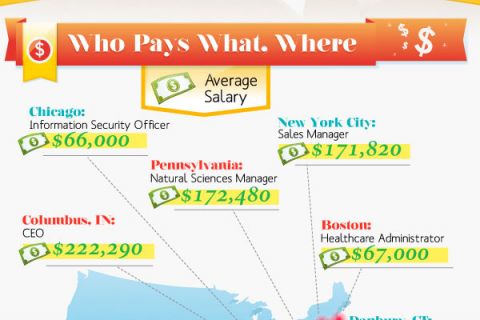Request Information
We're Sorry
There was an unexpected error with the form (your web browser was unable to retrieve some required data from our servers). This kind of error may occur if you have temporarily lost your internet connection. If you're able to verify that your internet connection is stable and the error persists, the Franklin University Help Desk is available to assist you at helpdesk@franklin.edu, 614.947.6682 (local), or 1.866.435.7006 (toll free).
Just a moment while we process your submission.

How to Find a Personally & Financially Rewarding College Degree
“Focus on the future,” say progressives.
“Go where the money is,” say relatives who don’t want you moving in.
“Don’t settle for less than personal fulfillment,” say those who beat a different drum.
So goes the advice of many for how to choose your college degree.
But why choose based on only one end result?
Here’s how to find the triple win we’ve dubbed the “college degree trifecta.”
- Study occupational outlooks.
A crystal ball won’t help you see into the future, but a well-researched database can. O*NET Resource Center, a part of the American Job Center, lets you search (free!) hundreds of occupations and job titles, including those expected to experience mega growth in the next five to 10 years. - Look at salary forecasts.
Although salaries are one of the last details talked about during the job interview process, you can find occupations by salary and degree from the United States Department of Labor, Bureau of Labor Statistics. - Get some satisfaction.
A recent Gallup survey showed that 71 percent of American workers are unengaged or actively disengaged from their work—aka, they’re miserable. In spite of the staggering statistic, finding meaning in your career really is possible. Some of the happiest careers, says a survey by the National Opinion Research Center at the University of Chicago are clergy, firefighters, educational administrators, psychologists and operating engineers. Here are some tips for choosing a degree that matches your passions. - Look for trends and patterns.
Now that you’ve done your research, make a list of job titles, highlighting the ones that fall into all three categories: (1) good occupational outlook, (2) optimal salary forecasts and (3) possessing the possibility of personal fulfillment. - Make your match
Armed with your short list of ideal job titles, determine which degree programs are required of each career choice. Then read up on the college degree programs that strong matches. Now you’re not only ready to make your trifecta pick, you’re well prepared to win at the finish line.As always, if you'd like to talk to someone for additional advice or perspective, get in touch with us today.Best of luck!





